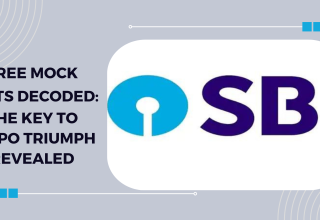Embarking on the International Baccalaureate (IB) Chemistry course involves more than just learning about chemical reactions and formulas; it’s a deep dive into the principles that orchestrate these reactions, tailored to apply them in tangible, real-world scenarios. This demanding course enhances students’ analytical and problem-solving skills and prepares them for advanced studies in science and engineering, equipping them with essential tools to address complex challenges.
Navigating through IB Chemistry presents its own set of hurdles. The extensive scope of topics, such as organic chemistry and thermodynamics, can overwhelm even seasoned scholars. For newcomers, the vast amount of content to absorb necessitates a well-organized learning strategy.
Leveraging diverse resources is key to conquering the complexities of IB Chemistry. Textbooks, online tutorials, and study groups offer varied insights and explanations that demystify tough concepts. Additionally, support from educators and fellow learners proves crucial. Through active participation with these aids, students can establish a strong foundation in chemistry that paves the way for academic excellence.
Decoding the IB Chemistry Exam Structure
The IB Chemistry exam is a complex assessment designed to gauge a student’s grasp of the entire course content. It unfolds in several segments, each crafted to evaluate distinct skills. Typically, the exam includes multiple-choice questions, short-answer items, and extended-response queries. Each question type demands a unique approach, making an understanding of this format crucial for effective study strategies.
To excel in the IB Chemistry exam, strategic preparation is indispensable. This includes familiarizing oneself with the exam’s structure and engaging with previous exams as practice material. Such preparation helps students identify likely question types and devise appropriate methods to address them. Moreover, mastering time management during these practice sessions is vital; it teaches students how to efficiently allocate their time across different sections during the actual exam.
Beyond mere memorization of facts, students should aim to thoroughly comprehend fundamental concepts. This deeper insight allows them to adapt their knowledge flexibly across various questions and contexts encountered in the test. By enhancing both their understanding of key principles and their test-taking skills through rigorous practice, students can approach the IB Chemistry exam with confidence and aspire for top-tier results.
Study Techniques for Success
Understanding IB Chemistry requires more than just reading through the textbook; it involves a hands-on approach to learning. Active learning, a method where you engage directly with the material, proves invaluable. Rephrasing complex chemical reactions in your own words, explaining these processes to a fellow student, or designing flashcards that break down intricate formulas and terms are effective strategies. These not only deepen your grasp of the subject but also enhance your ability to retrieve this knowledge effortlessly during exams.
Another powerful tool in your study arsenal should be concept mapping. This technique transforms abstract chemical concepts into visual networks that illustrate how these ideas interlink. As you map out these connections, you’ll likely uncover previously unnoticed gaps in your understanding while simultaneously constructing a visual aid that can streamline your revision sessions before tests.
Don’t overlook the benefits of group study sessions either. Collaborating with classmates opens up new avenues of thought and clarifies complex topics through discussion and debate. More than just academic support, these gatherings foster motivation and make the journey through IB Chemistry more engaging for everyone involved.
Mastering the Data Booklet
The IB Chemistry data booklet is a crucial resource for students, filled with essential information that proves invaluable during exams and coursework. It houses critical data and formulas integral to solving complex chemical equations. A thorough understanding of this booklet is essential for anyone aiming to excel in IB Chemistry, offering a significant time advantage during those critical exam moments.
To effectively utilize the data booklet, one must become its apprentice, dedicating time to understand its structure and contents. This mastery allows students to swiftly pinpoint necessary information amidst the stress of an exam setting. Moreover, integrating this practice with past paper exercises under timed conditions can significantly boost one’s confidence and proficiency.
Beyond exams, the data booklet serves as a formidable ally in coursework. Learning to navigate this treasure trove of information can elevate a student’s approach to problem-solving, refining their work quality substantially. Regular engagement with the booklet throughout one’s study regimen not only sharpens skills but also provides a strategic advantage in mastering IB Chemistry.
Avoiding Common Pitfalls with the Data Booklet
In the realm of IB Chemistry, the data booklet is a crucial tool, yet it’s often misused. A frequent oversight is relying too heavily on this resource without a deep understanding of the chemistry concepts it references. While this booklet is packed with useful information, mastering the foundational material is key to leveraging this data effectively.
Another stumbling block for many students is their unfamiliarity with the data booklet prior to examination day. Those who haven’t spent time getting comfortable with its layout can find themselves frantically flipping through pages during tests, losing precious time. Regular practice and thorough review of the booklet are essential strategies for becoming adept at quickly finding necessary information.
Moreover, vigilance against errors while using the data booklet cannot be overstated. Always verify your calculations and double-check that you’re using accurate data. By being aware of these common pitfalls and actively working to sidestep them, students can harness the full potential of their data booklet to enhance their performance in IB Chemistry.
Enhancing Learning with Resources
Beyond the IB Chemistry data booklet, a wealth of supplementary materials awaits eager learners. Dive into online tutorials and videos for a deeper understanding of complex topics, offering visual learners the chance to see theories come to life. These tools are beneficial for those who grasp concepts best through dynamic visual representation.
Textbooks remain a cornerstone of learning in IB Chemistry, packed with comprehensive explanations and practice questions vital for cementing knowledge. Students are encouraged to explore various textbooks to find those that resonate with their unique style of learning. Moreover, study apps bring an element of fun to revision through interactive quizzes and flashcards, transforming study sessions from mundane to captivating.
By embracing a diverse array of supplementary resources, students can significantly enrich their understanding of IB Chemistry. These tools not only offer varied perspectives but also provide tailored explanations designed to help learners tackle obstacles and excel in their studies.
Preparing for Exams
Conquering IB Chemistry requires a well-organized plan for exam preparation. Crafting a study schedule that dedicates time to each topic and integrates consistent review sessions is vital. This approach not only covers all necessary material but also avoids the pitfalls of last-minute cramming. By distributing study periods over time, students enhance their memory retention and minimize stress.
Engaging with past exam papers forms another cornerstone of effective preparation. This practice acquaints students with potential exam questions and hones their answering techniques. Moreover, working against the clock during these sessions sharpens time management skills and boosts self-assurance.
Utilizing the IB Chemistry data booklet during these practice drills simulates real exam conditions, aiding students in becoming adept at quickly finding needed information. Implementing these strategies empowers students to tackle the IB Chemistry exam with assurance and excel.
The Role of Practice and Persistence
In the realm of IB Chemistry, consistent practice intertwined with steadfast persistence forms the foundation of mastery. Engaging in regular study sessions not only deepens understanding but also enhances memory retention, thereby simplifying the process of recalling information during critical exams. By allocating daily time slots for review and exercises, students lay down a robust foundation in chemistry while honing skills crucial for excelling in the course.
Moreover, persistence plays a pivotal role when facing inevitable hurdles and setbacks. Given its demanding nature, IB Chemistry presents numerous challenges that might seem daunting at first. Yet, it is through maintaining an optimistic outlook and pushing forward against adversities that students cultivate resilience and sharpen their problem-solving skills.
Echoed by testimonials from those who have succeeded in IB Chemistry, it becomes clear that relentless practice coupled with unwavering persistence is instrumental to success. Committing time and effort diligently while leveraging available resources empowers students to navigate obstacles effectively and fulfill their academic aspirations. With unyielding determination and a dedicated approach to learning, achieving excellence in IB Chemistry is decidedly attainable.
Navigating the Path to Mastery
To excel in IB Chemistry, adopting a strategic learning approach and a steadfast commitment to leveraging all available resources is essential. Grasping the exam’s structure, applying effective study methods, and utilizing the IB Chemistry data booklet can significantly boost one’s understanding and performance. Moreover, integrating additional resources and crafting a well-structured study plan can offer extra support and direction.
Embarking on the IB Chemistry journey presents its challenges; however, with continuous perseverance and dedication, success is within reach. By staying driven and proactive in their educational endeavors, students can cultivate the necessary skills to not only thrive in this course but also lay a robust groundwork for further studies in science or engineering disciplines.
With an appropriate strategy and a deep-seated dedication to their studies, students are well-positioned to meet their objectives and excel in IB Chemistry. By harnessing the discussed tools and methodologies, they can adeptly navigate through this complex subject matter, ultimately building a solid chemical foundation that will benefit them academically and professionally.











